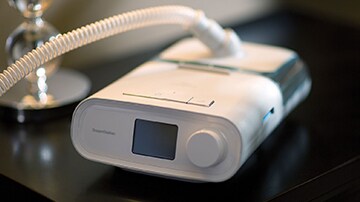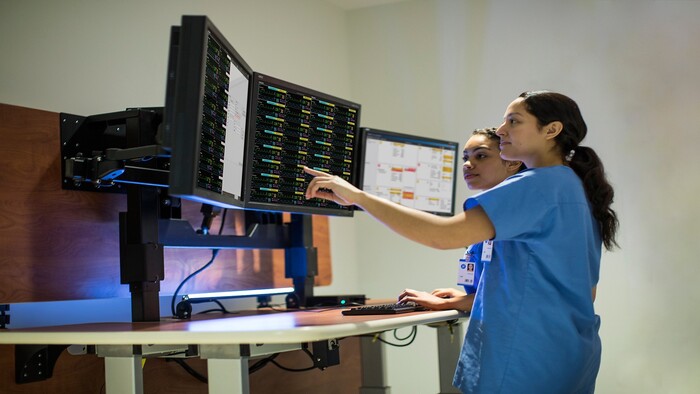Nov 20, 2017
Philips raises awareness of Obstructive Sleep Apnea in the Philippines
Philips, Sleep Society of Philippines and Centuria Medical Makati, hosted the Sleep Apnea Forum to educate healthcare professionals in the diagnosis and treatment of OSA
Obstructive Sleep Apnea and lifestyle habits contribute to sleep deprivation in the Philippines
Manila, Philippines – According to the 2016 Healthy Living Index Survey, Filipinos have one of the highest rates of sleep deprivation in Asia; 46% of Filipinos do not get enough sleep while 32% said they sleep for less than six hours. This mirrors a lifestyle challenge that urbanites worldwide are grappling with. In the 2017 Philips’ Unfiltered Sleep: A Global Prioritization Puzzle , an international survey which looked at how people across the globe perceive, prioritize and prepare for sleep, more than 8 in 10 adults (84%) say that a variety of activities take precedence over a good night’s sleep. Beyond lifestyle habits, one of the most common causes of poor sleep quality is Obstructive Sleep Apnea (OSA), a condition that disrupts the sleep cycle and affects one’s energy, intellectual performance and long-term health. Due to collapsed airways, a patient with OSA stops breathing repeatedly thereby disrupting sleep. The disorder often goes undiagnosed due to the lack of awareness both on the part of the patients as well as primary care physicians. Untreated OSA in the long-run can result in life-threatening conditions such as cardiovascular diseases; type 2 diabetes, abnormal heart rhythms, high blood pressure and even stroke.
Philips raises awareness of OSA at Sleep Apnea Forum
To increase the rate of diagnosis, Philips, the global leader in sleep and respiratory solutions, together with the Sleep Society of Philippines and Centuria Medical Makati, Philippines’ First Medical Mall hosted the Sleep Apnea Forum to educate healthcare professionals in the diagnosis and treatment of OSA. More than 50 doctors and healthcare professionals attended educational lectures at the Forum to augment their knowledge in the diagnosis of OSA. Following which, Philips also shared its latest treatment solutions for sleep apnea, such as oxygen therapy, non-invasive ventilation and respiratory drug delivery. To help patients better monitor their condition to improve treatment outcomes, Philips also shared its cost-efficient and innovative solutions including DreamStation and Dreamwear. “Lifestyle habits aside, the incidence of sleep deprivation in the Philippines is escalating with the misdiagnosis of Obstructive Sleep Apnea. By educating healthcare professionals at the Sleep Apnea Forum, we aim to enhance the diagnosis and treatment of Obstructive Sleep Apnea in the country,” said Urasinee Patasongkram, Country Manager, Philips Philippines Inc. “With Philips’ DreamStation and DreamWear solutions, we are confident of achieving better treatment outcome and enhancing patient adoption by empowering them to monitor and manage their respiratory condition independently,” he added. The easy-to-navigate menu, compact design and quiet operation of the DreamStation makes it simple for physicians and patients to customize sleep apnea therapy. The open-face design of DreamWear provides superb comfort, freedom to move and the ability to choose the most comfortable sleep position.
Lifestyle habits aside, the incidence of sleep deprivation in the Philippines is escalating with the misdiagnosis of Obstructive Sleep Apnea. By educating healthcare professionals at the SleepApnea Forum, we aim to enhance the diagnosis and treatment of Obstructive Sleep Apnea in the country. With Philips’ DreamStation and DreamWear solutions, we are confident of achieving better treatment outcome and enhancing patient adoption by empowering them to monitor and manage their respiratory condition independently
Urasinee Patasongkram
Country Manager, Philips Philippines Inc
About Royal Philips
Royal Philips (NYSE: PHG, AEX: PHIA) is a leading health technology company focused on improving people's health and enabling better outcomes across the health continuum from healthy living and prevention, to diagnosis, treatment and home care. Philips leverages advanced technology and deep clinical and consumer insights to deliver integrated solutions. Headquartered in the Netherlands, the company is a leader in diagnostic imaging, image-guided therapy, patient monitoring and health informatics, as well as in consumer health and home care. Philips' health technology portfolio generated 2016 sales of EUR 17.4 billion and employs approximately 71,000 employees with sales and services in more than 100 countries. News about Philips can be found at www.philips.com/newscenter.











